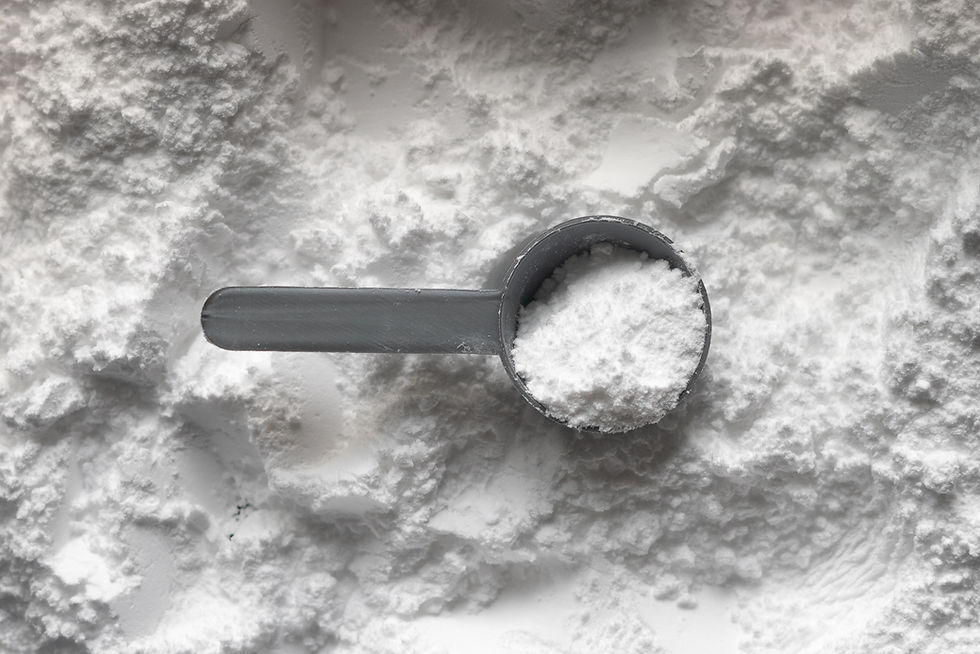Buzzword series: Gluten-Free
- Josie Porter

- Jan 24, 2020
- 3 min read
Updated: Apr 16, 2022
Is there any sense in boycotting our gluten containing goods?

What is gluten?
Gluten is a protein found in wheat, barley and rye. Hence gluten is contained in foods such as bread, pasta, couscous, pizza, biscuits, cakes and pastries (yes croissants inc). So in short, gluten is in some of the world's BEST foods. Not only that, but traces of gluten may also be found in naturally gluten-free foods due to cross contamination; such as oats, non-wheat flours, and in some cereals containing barley malt extract. For anyone like me, that eats porridge religiously this is verging on upsetting.
Another spanner in the works, is that for those following a gluten-free diet can also be exposed to gluten through cross-contamination in kitchens if people using gluten-containing foods do not decontaminate their work surfaces, cooking utensils or equipment.
Gluten-free diets are not recommended for the general population, however are the only treatment for someone who is diagnosed with coeliac disease. Coeliac disease affects 1 in 100 people; it is a condition whereby consuming gluten leads to the immune system attacking its own tissues. Which consuming even small amounts of gluten, can cause damage to the gut lining and malabsorption of nutrients such as iron, vitamin B12, folate and calcium. In the long-term, this may lead to further complications such as osteoporosis (weak, brittle bones), malnutrition and anaemia. Coeliac disease is not an intolerance or an allergy- instead it is an autoimmune condition.
Non-coeliac gluten sensitivity (or gluten intolerance) is another term that is often thrown around. Essentially this is defined as the improvement of gut symptoms following a gluten-free diet. However, we are unsure whether this is placebo effect, or possibly that by removing gluten-containing foods you are also likely cutting out processed foods, additives, sugar and fat which in itself may be alleviating those gut symptoms. Moreover, it might actually be an underlying wheat intolerance or the FODMAPs (poorly digested carbohydrates) contained in gluten-containing food.
Fortunately, many solutions are available for those who follow gluten-free diet such as those diagnosed with coeliac disease. Major supermarkets are now churning out gluten-free foods such as biscuits, cakes, pasta, bread and pizza. With many restaurants also providing gluten-free options.
Should you boycott gluten?
Gluten-free foods are not necessarily healthier than their gluten-containing counterparts. Often gluten-free products have more sugar, salt and fat, and less fibre, zinc, iron, folate and protein.
Eliminating gluten-containing foods means that likely you will be removing wholegrains and grains, which are great sources of fibre, antioxidants and vitamins. This may have an impact on your gut bacteria as grains are amazing sources of prebiotic fibre (i.e. gut fertiliser), so removing these may cause a shift in the diversity of the bacteria living in your gut. More evidence is surfacing about the importance of a gut diversity and its association with immune function, insulin resistance, diabetes, inflammatory bowel disease and obesity... to name a few.
Not to mention, gluten-free foods are typically more expensive. One recent UK study found that gluten-free foods are on average 159% more expensive than their gluten-filled counterparts. Although, some goods news is that gluten-free products are gradually becoming more affordable overtime - for example an earlier study showed that gluten-free products used to be up to four times more expensive.
There is currently no evidence that suggests going gluten-free is beneficial for weight loss. If anything, it may lead to switching to alternatives that are more calorie dense which may lead to weight gain.
But what if I have been experiencing symptoms and I think going gluten-free might help?
If you have been experiencing symptoms such as changes in your bowel habits (diarrhoea or constipation), excessive wind, stomach cramps/pain, bloating or nausea (see more symptoms here) then you should first consult your GP and discuss ruling out coeliac disease (you can use this online assessment too). A blood test would then be required to test for antibodies, for this to be accurate you will need to consume at least 1 meal a day containing gluten for six weeks before ultimately taking the blood test. Depending on the test result you may need further examination.
Once coeliac has been ruled out, you may then wish to seek further dietary advice from a registered dietitian or nutritionist who can lead you in the right direction regarding trialling a wheat-free or low FODMAP diet. It is not recommended that you trial an elimination diet without the supervision of a healthcare professional due to the restrictive nature of such diets.
To summarise, cutting out gluten for 2020 makes no sense unless you are diagnosed with coeliac disease. Gluten-free diets are not superior to normal diets containing gluten. If you are experiencing gut symptoms and you want to explore this further, please speak to your registered GP or healthcare professional who can put you in the right direction.




Comments